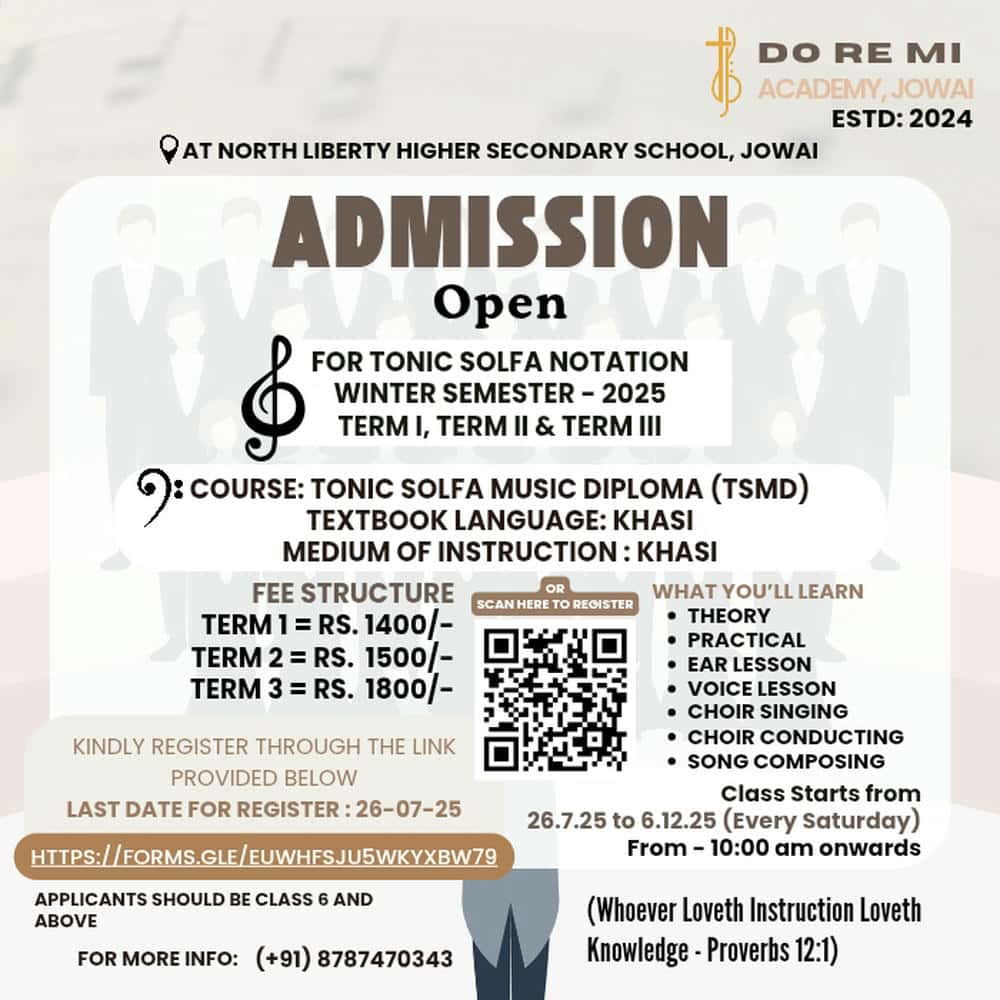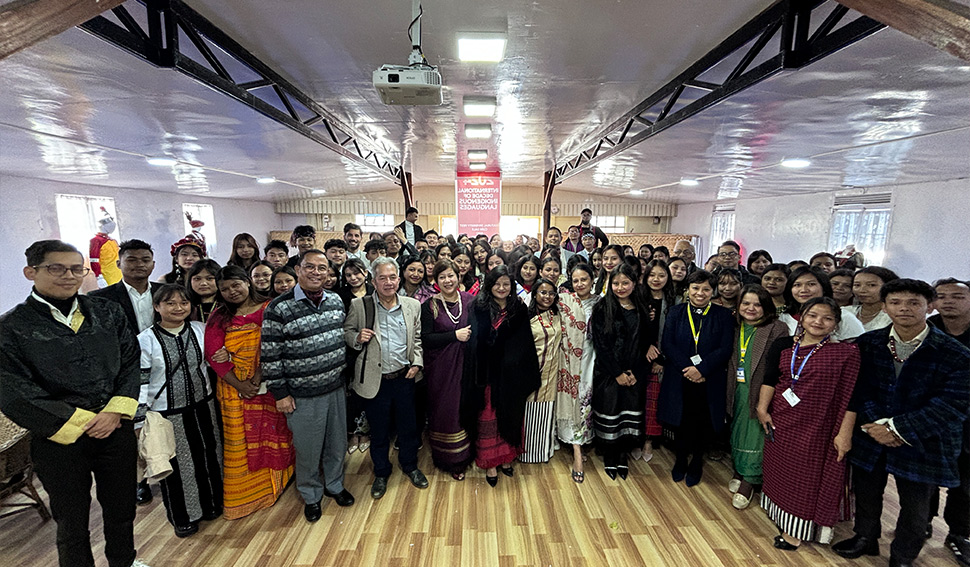MLCU celebrates the International Decade of Indigenous Languages

In line with the United Nations General Assembly’s declaration of 2022-2032 as the International Decade of Indigenous Languages (IDIL), Martin Luther Christian University (MLCU) hosted a special event to recognize the importance of indigenous languages and cultures. This proclamation, stemming from the 2019 International Year of Indigenous Languages (IYIL2019), aims to preserve and promote indigenous languages, empowering their speakers and supporting the broader objectives of the United Nations Declaration on the Rights of Indigenous Peoples.
The event, organized by MLCU’s School of Languages and Cultural Communication on November 27, 2024, took place in the university campus in Nongrah. It aligned with the global objectives of IDIL, emphasizing the preservation of indigenous languages and cultures.
The event featured distinguished guests, Prof. Desmond L. Kharmawphlang and Mr. Damenshan G. Hynniewta.
Prof. Kharmawphlang, a renowned folklorist, poet, and academician, shared insights into the significance of indigenous languages in folklore and oral traditions. With a distinguished career in folkloristics and representation of Indian folklore on the international stage, he is currently a professor at North-Eastern Hill University in Shillong.
Mr. Hynniewta, a multifaceted theatre artist, playwright, and composer, also engaged in discussions about the role of indigenous languages, particularly Khasi, Pnar, and Garo, in mainstream theatre. Drawing from his vast experience in global and Indian theatre, including his involvement in London’s West End, he emphasized how theatre serves as a medium for language preservation.
The event featured vibrant participation from both faculty and students, who showcased the richness of indigenous cultures through conversation, songs, food, and costumes. This collaborative celebration highlighted the unity and spirit of the North Eastern states of India, reaffirming MLCU’s commitment to preserving and promoting indigenous languages and traditions.


Leave a Reply